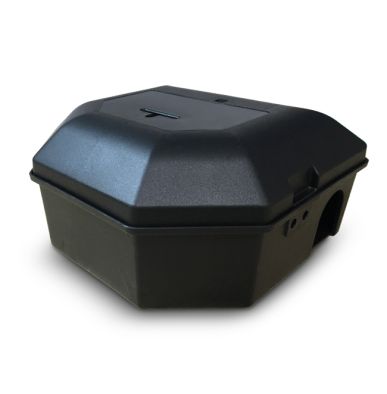The pest control industry is crucial, it protects our homes and businesses from the damage, contamination, and health risks posed by unwanted pests like rodents, insects, and other nuisances. However, the quality of pest control matters significantly. A pest controller who rushes the job or attempts to perform it quickly without thoroughness can create more problems than they solve, especially when it comes to their safety.
When facing an infestation, homeowners and business owners often feel pressure to get rid of pests as quickly as possible, however, speed should never come at the expense of thoroughness and safety.
Effective pest control requires careful planning, precise identification of pests, choosing the right pesticides or treatments, and proper follow-up. Rushing through any of these steps can lead to ineffective treatments, exposing you to pests longer.
Why is it important to properly survey an area when arriving at a job?
Pest control isn’t just about placing pesticides and leaving—it requires an understanding of how and why pests are entering the space. If a pest control technician is rushing, they might treat the surface-level problem and immediately jump getting out the bait stations and putting the poisons down, without identifying the root cause.
Rushing a job can lead to missing entry points. Failing to identify and seal entry points (like cracks, holes, or gaps in walls and floors) means pests can return. Addressing the cause of the infestation is crucial for long-term pest management and reduces the chance of a repeat call-out.
Why Technicians Need to Handle Pesticides Properly
One of the biggest risks of rushing a pest control job lies in the improper use and handling of pesticides. These powerful chemicals in rodenticides, insecticides or any other form of poison for the purpose of pest control, must be applied with precision to ensure safety and effectiveness, but a hurried approach can lead to either overuse or underuse of the product.
Applying too little pesticide at a job often fails to eliminate the infestation, leaving pests to persist and potentially requiring repeated treatments. However, applying too much pesticide can create a toxic environment for people, pets, and non-target species, making it a dangerous place for home or business owners to return to once the job is complete.
The pressure to work quickly can lead to misidentifying the pest and using an inappropriate product, which not only risks worsening the infestation but also poses dangers to beneficial insects and household pets. In each of these cases, rushing compromises both safety and effectiveness, ultimately leading to greater risks and potentially higher long-term costs.
Don’t Ignore Safety Guidelines and Regulations
Professional pest control services must adhere to strict safety guidelines and regulations to minimize the risks of harmful exposure to pesticides. When pest controllers are in a rush, they may overlook crucial safety procedures, such as:
Pest controllers are trained to use protective gear such as gloves, masks, and goggles when applying dangerous chemicals. If they skip these precautions to save time, they put themselves at risk of exposure to harmful substances, increasing their chance of long-term health issues, like respiratory problems or skin irritation. The health risks don’t end with the technician—chemicals could linger on surfaces, putting residents or workers at risk too.
Equipment such as sprayers, dusters, or fogging machines need to be handled carefully. Rushing can lead to malfunctions or incorrect usage, which could expose the operator or the property owner to harmful chemicals.
Is it Worth the Risk?
Given the serious risks involved in rushing a pest control job, both to the technician’s health and safety and to the effectiveness of the treatment, the question is worth asking: Is it worth the risk if something bad happens?
For the homeowner or business owner, the answer is almost always no.
Poor pest control services can lead to increased health risks, persistent infestations, and costly damage in the long run.
For the pest control technician, cutting corners may save a few minutes in the short term but could result in long-term health consequences or even legal issues if safety regulations are violated.





“ You cannot fault the service from 1ENV. I ordered at 9am on Monday. Order was with me 7:30am Tuesday! I was getting ready to kick off at the driver parked across my drive until I realised it was for me! Fantastic service & products unique to them. Thanks again. ”